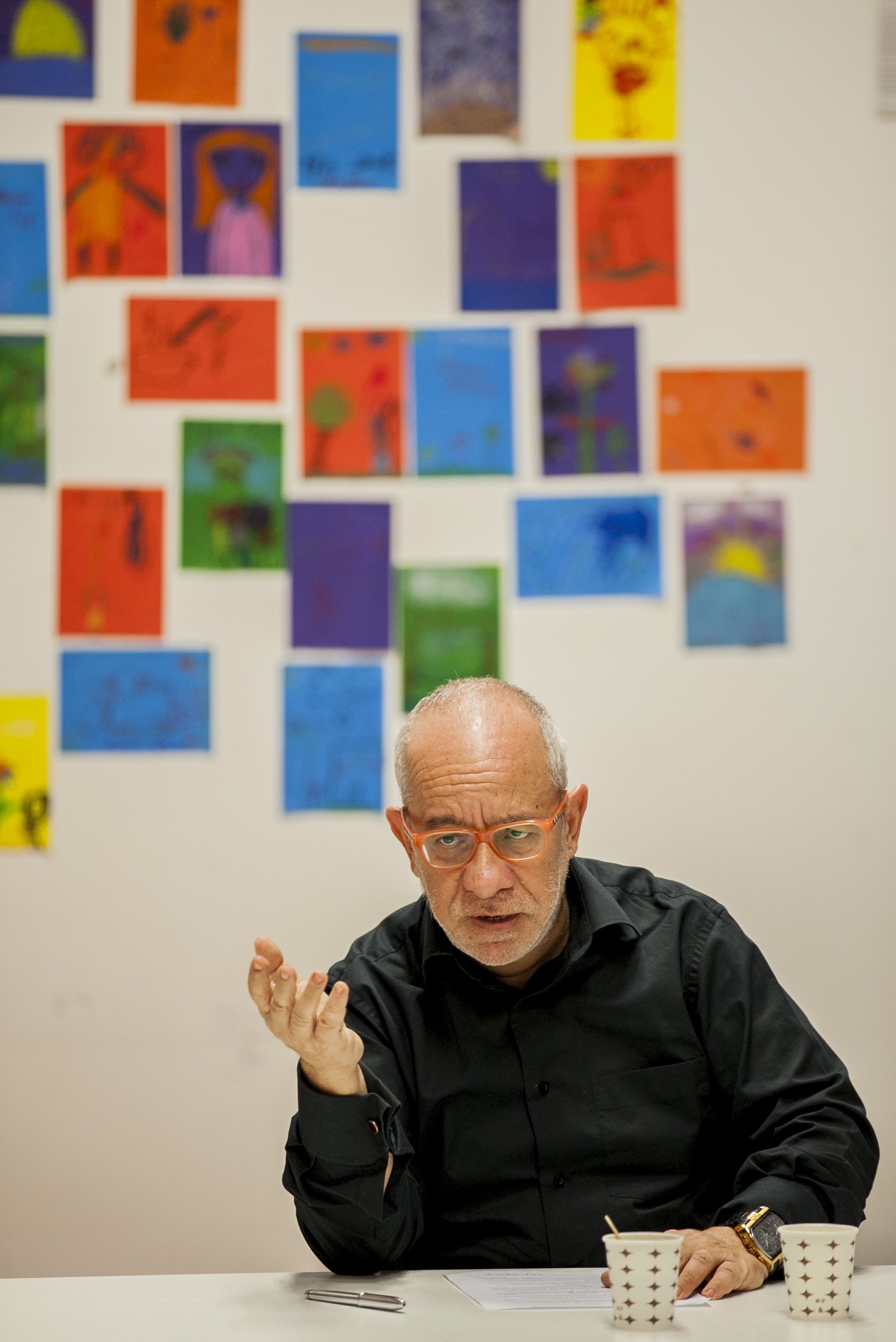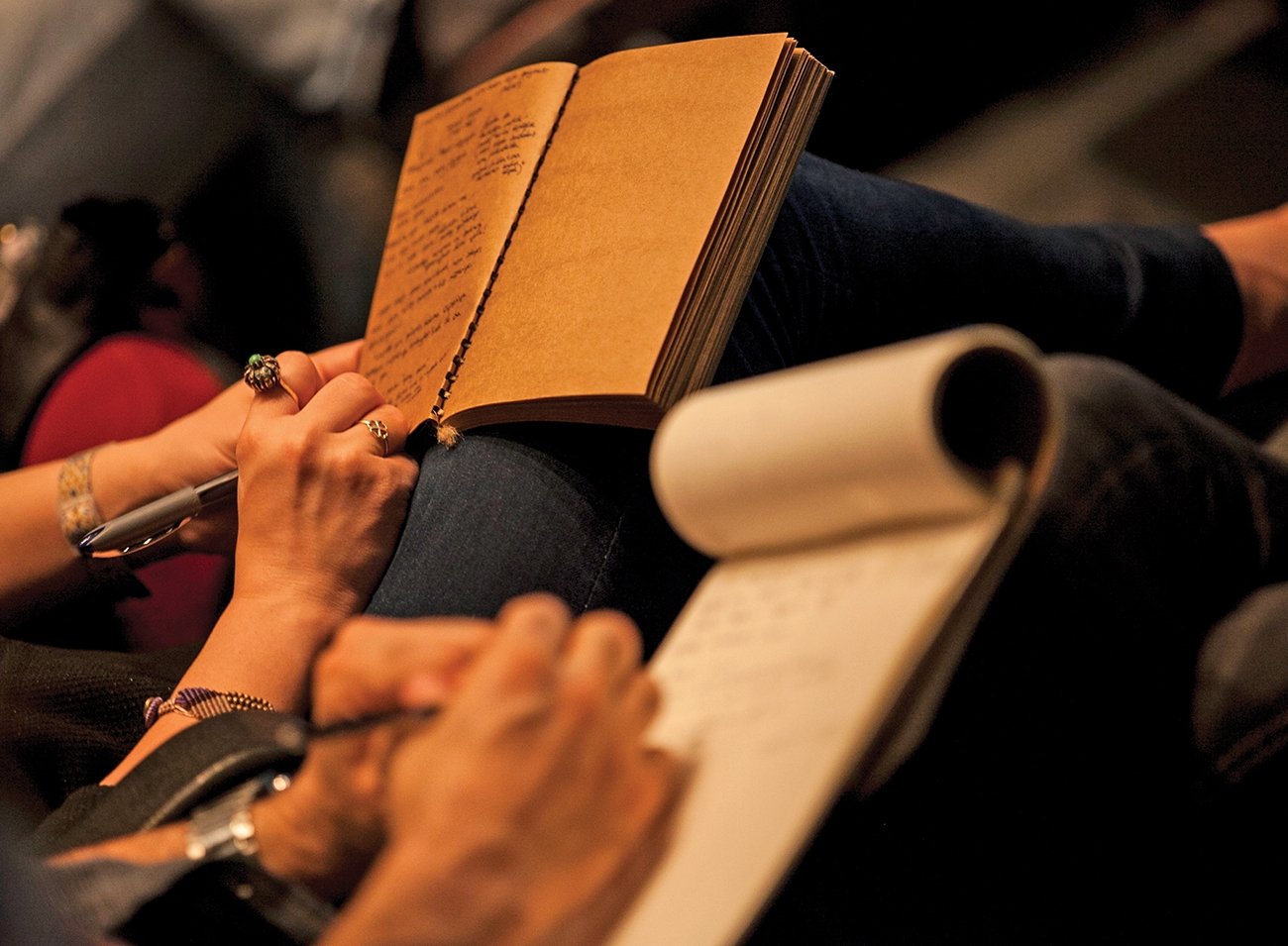© Turkuvaz Haberleşme ve Yayıncılık 2024
Istanbul Modern's workshop and seminar program, Atölye Modern, integrates art with life, inviting participants to discover the diverse aspects of modern and contemporary art and reinterpret life through diverse disciplines.
Led by experts in fields such as art history, literature, sociology and history, Atölye Modern's programs offer content-rich subjects from modern and contemporary art clearly and comprehensively.
The museum has been developing and diversifying Atölye Modern's theoretical and practical programs, in light of experiences and expectations, since the launch. Following the great interest in previous editions, the program has continued its online seminars and workshops through winter this year.
Set to start on Jan. 13, Atölye Modern's winter term program will present "Story and Novel Workshop," where participants can improve their capacity of writing, and "Seminars on History of Art." Both events will offer a new perspective to participants with their thematic content.

New workshop with Mario Levi
Istanbul Modern is set to take its "Creative Writing Workshop," which has seen huge interest from participants in every Atölye Modern term since 2010, to another level with renowned author, Mario Levi.
As a follow-up to this workshop, Atölye Modern will start the "Story and Novel Workshop" in the winter term. The program is open for anyone who has completed the "Creative Writing Workshop," the basic level training on writing at Atölye Modern, or anyone looking to improve themselves as a writer.
Conducted by Levi, the workshop is scheduled from 7:30 p.m. to 9:30 p.m. on Jan. 13, 20 and 27, followed by on Feb. 3, 10, 17, 24, and March 3. The eight-week workshop program aims to explore literary works, the unique styles of literary works and their writers, literary movements and the opportunities of taking inspiration from various literary genres. It also focuses on the works that participants are currently writing or planning to write. Under the guidance and with Levi's support, the participants will seek the methods they can pursue in story and novel writing. A maximum of 15 participants will be accepted into this program.
Online seminars on art history
Atölye Modern's online program consists of the seminars "Archaeology of Modern Art," "Portrait of the Artist in Modern and Contemporary Art," "Story of the Daily and Ordinary in Modern and Contemporary Art" and "Contemporary Art and Politics," which invite participants to explore the historical development of arts.
Atölye Modern's online seminars will be given by professor Esra Alicavuşoğlu from Marmara University Fine Arts Faculty, lecturer Fırat Arapoğlu from Altınbaş University and lecturer Osman Erden from Mimar Sinan Fine Arts University.
The program provides new and different insights into the history of art and offers a historical perspective through the themes of modern and contemporary art. Each of these seminars includes methods of evaluating modern and contemporary art from a different angle and looking at the history of art through different reading recommendations. Besides, the seminars complement each other with their historical processes and different styles of reading about the development of modern art.

The first seminar "Archeology of Modern Art" will be conducted by Arapoğlu from 7:30 p.m. to 9:30 p.m. on Jan. 19-26 and Feb. 2.
How did the concept of art come about? When did the concept of the artist begin to emerge? How has the object of art been perceived throughout history? What is its function? This seminar questions and discusses what art has been and how it has transformed from past to present with a historical perspective. It deals with the origins of the terms we use, the historical references of the forms emerging in art, and how the dialogue of the work of art comes from a tradition. It sheds light on some forms, concepts and changes in the perception of art from ancient Greece to the present day.
The second seminar "Story of the Daily and Ordinary in Modern and Contemporary Art" will be presented by Arapoğlu from 7:30 p.m. to 9:30 p.m. on Jan. 21-28 and Feb. 4. When did artists begin to offer cross-sections from everyday life in their works of art? How did the involvement of everyday life, even the ordinary, in art affect the production and perception of art? The seminar deals with the relationship of the modern and contemporary art with everyday life and examines in which historical turning points the idea of "everyday life," which has been the subject of modern art or has affected the forms of production and consumption of modern art, became the subject of art and how it affected the forms of artistic expression that followed it. It sheds light on how 20th-century art has changed historically.
The third seminar "Portrait of the Artist in Modern and Contemporary Art" will be held by Aliçavuşoğlu from 7:30 p.m. to 9:30 p.m. on Feb. 9, 16 and 23.
How does the artist use his own body as a form of artistic expression in modern art? How does he look at, portray and interpret his self-portrait? What do self-portraits tell us about modern works of art? This course focuses not only on the concept of self-portrait but also on the idea of being an "artist" in the 20th century. It deals with artists who have directed modern art with their production. As it proceeds through examples of artists' works, it deals with the way artists describe themselves through art. It explores the spirit, ideas and expressions of the era through works of art.
The fourth seminar "Contemporary Art and Politics" will be given by Erden from 7:30 p.m. to 9:30 p.m. on Feb. 11, 18 and 25.
What is the relationship between art and politics? How do artists approach politics in their artistic production? What is the decisive role of the artist in society? The seminar approaches the relationship between art and politics from a historical point of view and addresses how artists are influenced by the political environment in which they live, and how they interfere with the course of society through their artistic productions and actions based on 20th-century art, especially from the 1960s to the present.
The participants can enroll in each of the seminars individually or as a group. The lectures will be held live via videoconference and the participants will be presented an Atölye Modern Online Participation Certificate.
